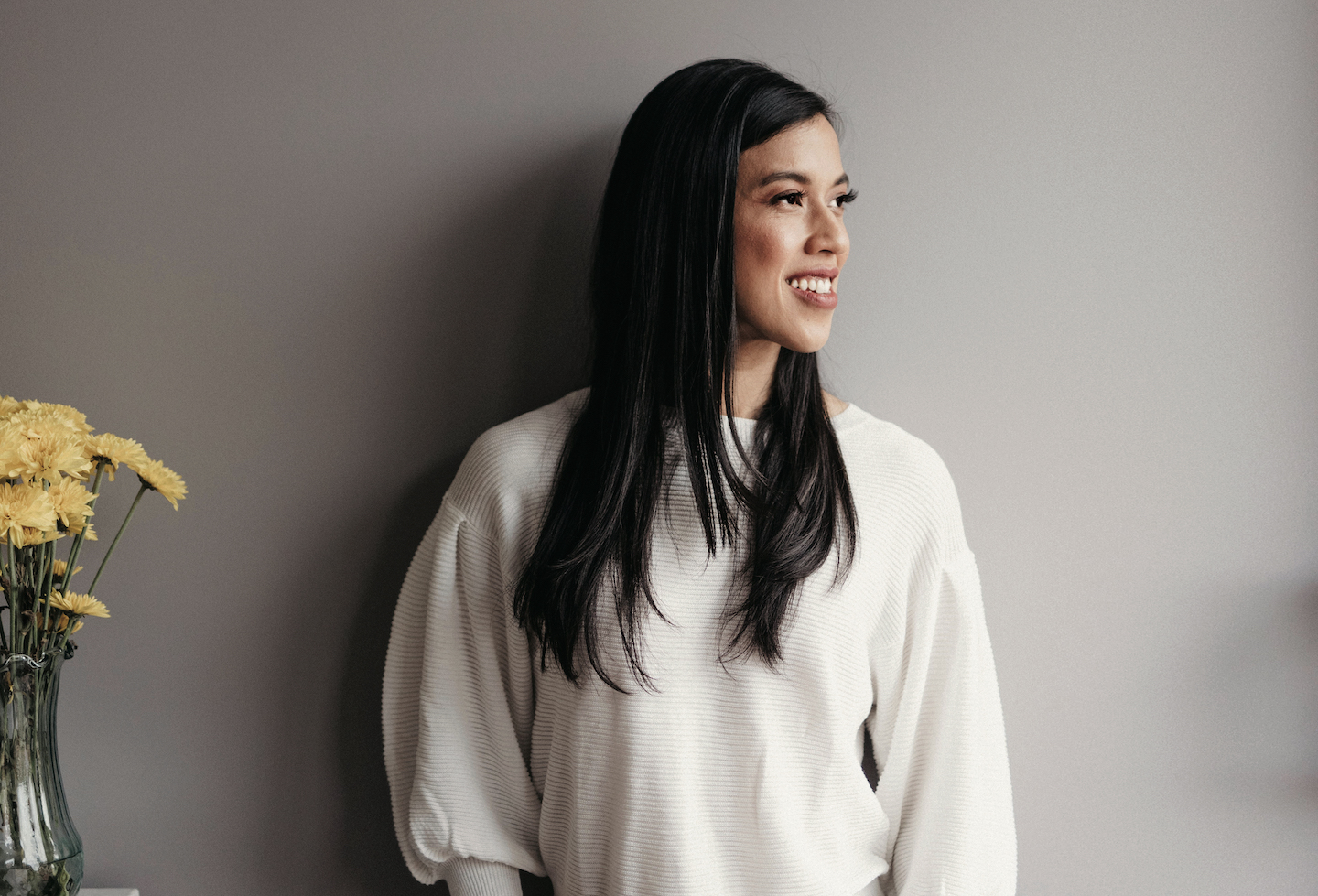
Nicol David was voted the World Games Greatest Athlete of All Time on Feb 1 (Photo: Nicol David)
In the 20 years when she dominated the courts, squash did the talking for Datuk Nicol David. Now retired from the professional circuit, she is happy that her story can translate into different forms and help people in some ways.
Her story is about a young girl who dreamt of being a world champion and had the guts to go for it. It highlights facing challenges head on because they are there for a reason and finding solutions to what is missing or lacking. It tells of a perfectionist hard on herself because of her singular aim — to be the perfect squash player.
“I hope I can inspire the young to dream big. If I can do it, you can aspire to do that too. If you have the passion to do something great and feel it’s right for you deep down, give yourself a chance to try. If the opportunity is there, take it. Don’t sell yourself short,” Nicol says when asked what she hopes those who look to her as a role model will see.
She was speaking in a Zoom interview on March 1 while under quarantine in Kuala Lumpur days after returning from Colombia. She moved from Amsterdam to Bogotá almost four years ago to train at altitude and with a different team, and for a change of environment. When her pro career ended, she decided Colombia was a great place to stay and has made it her second base, after Malaysia.
“Colombia is such a beautiful country and I love the vibes of the whole place. The people are so nice and the food and atmosphere are similar to Malaysia’s, only it’s on the other side of the world. I’m happy to have my time there and enjoy all it has to offer.”
Being voted the World Games Greatest Athlete of All Time on Feb 1 is a bonus for sure, adds Nicol, 37. She was surprised by the nomination; then everybody was texting everyone and the votes started coming in from all over, she relates. “It was a special experience for me and I am truly honoured and at the same time touched by the support I got from the country. The recognition from the World Games and among all the athletes around the world is very special.”
Retirement affords her freedom from competitive squash and a training regime, and time to find ways to give back to a sport that has taken her to the top of the world — Nicol was ranked world No 1 for nine years from 2006 to 2015 — and around it, playing in different countries, meeting people and making friends on and off the court.
“I’ve been doing motivational talks for corporate companies and on panels for NGOs, especially online during the pandemic, and that has worked out really well,” she says. Being Mercedes-Benz Malaysia’s brand ambassador, Sport for Good Ambassador for the Laureus Foundation and National Goodwill Ambassador for UNDP Malaysia also keeps her busy.
nicoldavid_11.jpg

There is another reason for coming home: She is finalising the registration of a foundation to empower girls and boys to reach their potential through the values of sport, using squash as the springboard. If all goes well, the Nicol David Organisation will be up and running early next year.
It will operate from the Bukit Jalil National Stadium as there is an existing set-up there, and start with 50 children aged eight to nine. Every year, another batch of 50 will be added, depending on funding and support. They will be taught respect and fair play — values she picked up through squash — healthy habits and life skills, as well as English to improve their proficiency in the language.
Details on coaches and teachers are still being worked out and Nicol hopes to bring in experts to give their input. The target is to create commitment from M40 families initially, but she envisions reaching out to B40 families in different parts of the country eventually and maybe offering subsidies for the children.
“It’s big and ambitious but I’m very certain this is the time to go out there and do something with what I have learnt. Working towards equality [involves] both girls and boys. If children can understand that from a young age, we can build a more inclusive society in the long run.
“We also want to create a positive, safe environment for them so they know it’s okay to be [at the organisation]. We want to give them a sense of comfort so the kids can be who they are and grow the way they want.”
It is the kind of nurturing environment she and her older sisters Lianne and Cheryl grew up in in their hometown, Penang, where family and community were involved in their life. “Building a community is one of the important things for growth,” says Nicol, who has always credited her parents, Ann Marie and Desmond David, siblings and extended squash family with the love, guidance and support that sustain her through highs and lows, wherever she went.
As one who took part in all kinds of sport in school, she sees technology separating people physically and keeping them indoors more. She hopes to show children that what they want is not all in their phone. “It’s really something outside your room, your house, that you can do with others and interact with one another,” she points out.
nicole_david_091.jpg

Motivating people to up their game, or whatever they have set their sights on, is also important for this eight-time world champion whose spectacular achievements are bookended by losses.
At the 2002 Asian Games, failure to retain the gold medal she had won four years earlier pushed her out of her comfort zone and led her to relocate to Amsterdam to train under Liz Irving, a former world No 2 and part of the Australian women’s world team.
Her parents were criticised for letting Nicol, then 18, leave home. Although scared, they saw her potential and knew if she put her mind to something, she would succeed. As a former national goalkeeper and a top athlete and hockey player for Penang, Desmond knew that given a chance, like his daughter had with funding, he would have done the same thing.
In 2017, Nicol lost to a player she had always beaten. That was a real kick in the guts. So, when Irving asked if she wanted to keep on playing because “you didn’t look very happy out there”, there was no skirting the inevitable issue.
“I broke down, thinking I had another two years left from that point. I realised I had nothing left to give, nothing left to improve. It was a tough time and I went through my own depression. But I came to terms with what was happening: It was time to let go of squash and transition to the next phase of my life using what I’d learnt to develop new skills.
“When I finally announced my retirement, it was one of the best things because I was ready to go. I was actually very happy because I had gone through the whole process of letting go. I was finally contented and ready to move on to do what I chose and be kind of free to explore bigger things and new territory.”
Irving, who coached Nicol for 16 years, credits her with having the mental edge, to which she says: “I do crumble, it’s just that you don’t see it often. I did have those moments when the pressure came on and I lost in earlier rounds. I have seen our badminton players; having to win that medal sometimes paralyses you because the pressure is so intense.”
A winning frame of mind takes training and practice. The experience of winning gave her confidence whenever she felt pressure because knowing what to do when down and how to come back up helped. “As athletes win more consistently, they chalk up experience and just go forward.
“When you are on the court, you aim to train your mind to be at that place where nothing else fazes you because you’ve trained so hard for it. You work towards being ahead of the pack and [place] so much more distance between you and the rest so you feel you’re on top of the game and they’re going to find it difficult to get to you.”
The process is not easy because it means having to minimise negativity and pressure. Nicol worked with sports psychologists at every phase of her career to learn something new about herself in order to handle factors such as her own expectations, outside expectations, and even facing different opponents.
“It’s tough but you train all the time to reach that moment in the competition when everything seems to fall into place. That’s when you feel invincible, which is quite nice. It’s like you’re in the zone and everything works fine and you want to do it all over again. So you train harder and work even more to make that happen again and again.”
Staying on course after setting a dream goal entails self-belief, the right mindset, willpower, readiness to push past limits, talent and, of course, endless practice. Nicol used to train twice daily, six days a week and never missed a session despite aches and pains.
It was a matter of meeting small daily targets, which became stepping stones to her end goal. But she never felt that she had to give up something for trophy or glory.
“It never occurred to me that I was sacrificing anything because I loved what I was doing. I thought it was part of the deal, to enjoy the whole process of training hard, making it all count, stepping out of my comfort zone to do what I had to do. If I kept to the process, with time and patience, I could achieve my goals.”
In hindsight, she says, moving to Amsterdam was “the best decision” she ever made in her life because Irving knew exactly how to motivate her and keep her excited about pushing herself further. And now that the “something missing” feeling post-retirement has passed, she finds herself “at the best place of my life”.
There is no doubt squash — a sport she has loved from the time Dad asked a friend to shorten a heavy wooden racquet so five-year-old Nicol could play when she followed her sisters, her role models, to the first public court in Penang — has changed her life.
“Being world No 1 was truly a fun place to be, but it was challenging. Those challenges made me grow as a person and develop a positive mindset that will continue to drive me forward in anything I do for the rest of my life.”
Going forward, Nicol is excited about seeing women’s squash develop further now that they are getting equal prize money as the men at more World Series events.
“The women’s game is getting great attention with the depth of the competition and top players pushing each other. You see men competing and they are determined. Women are determined too, but maybe a little bit of spark comes out from there because they have to break through a lot of barriers, like the idea that sport is only for those who can do it. Just the bravery of women athletes who want to shine — I think that is big enough.”
She is happy to be back in Malaysia after a year away and expects to spend more time here until her foundation finds its legs. “Char koay teow is the first thing my parents will take me to makan,” says the Penangite, who reveals that art is her other passion. She sketches plants, nature and her cat to keep her mind off distraction. “It’s a bit like therapy.”
During her training days, Sundays were sacred and she loved doing nothing to let her body recover, or chill out watching movies, walking in a park or hanging out with friends.
Blessed with muscle fibres that develop faster when she trains, according to her physiotherapist, Nicol sweats it out five times weekly, otherwise “my mind wanders and I get a negative spiral inside me. To be honest, I am also a little vain. I know how hard it is to look fit and good, so I don’t want to let myself go”.
Asked for her definition of a successful woman, Nicol says she is someone who is aware of her own abilities and capabilities, and creates opportunities for herself.
In conjunction with International Women’s Day on March 8, Mercedes-Benz is celebrating women who have succeeded in their respective fields regardless of culture and industry, via its She’s Mercedes platform.
nicoldavid_34.jpg

This global initiative, now in its fifth year, encourages women to share their life stories, achievements, career insights and roles in society through intense dialogues. Networking inspires, empowers and enables women to exchange ideas and learn from each other, whether about role models or topics that concern the future.
She’s Mercedes also offers women the opportunity to get to know the marque in a completely different and approachable way, inspired by the likes of female automotive pioneers such as Bertha Benz, the first woman to take a long-distance trip, from Mannheim to Pforzheim, Germany, in a vehicle in 1888, and Mércèdes Jellinek, whose Austrian businessman father Emil, the largest dealer in vehicles from Daimler-Motoren-Gesellschaft at that time, registered the name “Mercédès” as a trademark in 1900, thus protecting the brand legally.
Nicol sees She’s Mercedes as a place where strong women can have a voice, speak their mind and share their story. “Creating that community in another sense, and not just within the company, will help women become true versions of themselves. We have to continue to tell their stories so more women can be inspired and aspire to do great things.”
Women like her, although the Greatest Athlete of All Time — who says Mum, a retired teacher, always tells her “success goes up and down but if you are a good person and you know who you are and respect one another, it stays that way and people know who you are” — is too humble to ever add that.
This article first appeared on Mar 8, 2021 in The Edge Malaysia.


